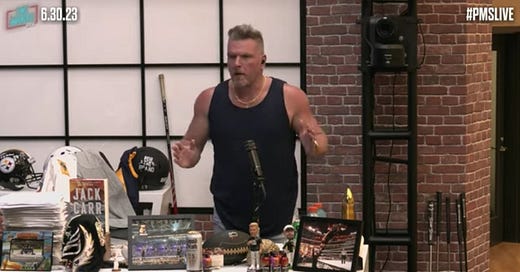Rabbit Hole: Why Pat McAfee is Winning While So Many Others in Media are Losing
In a sea of media smugness, an island of friendly authenticity
Rabbit Hole” is a single-topic deep dive column that comes out twice per month for paid subscribers. The free newsletter returns later this week.
Former ESPN host and current DraftKings-sponsored content creator Dan Le Batard was going after his former ESPN colleague Stephen A. Smith in a segment last week on his show — in theory. In reality, Le Batard a…




